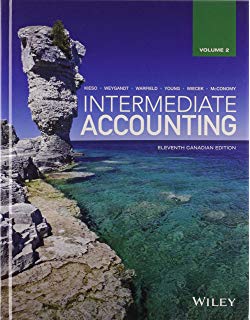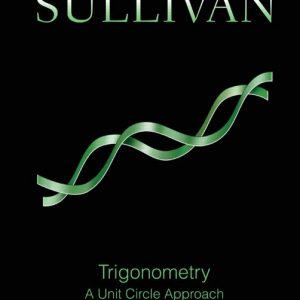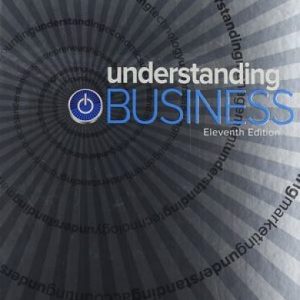This is completed downloadable of Solution Manual for Intermediate Accounting, Volume 2, 12th Canadian by Kieso

Product Details:
ISBN 13: 978-1119497042
Author:
Intermediate Accounting, 12th Edition, Volume 2, continues to be the number one intermediate accounting resource in the Canadian market. Viewed as the most reliable resource by accounting students, faculty, and professionals, this course helps students understand, prepare, and use financial information by linking education with the real-world accounting environment. This new edition now incorporates new data analytics content and up-to-date coverage of leases and revenue recognition.
Table of Content:
- Chapter 13: Non-Financial and Current Liabilities
- Understanding Non-Financial and Current Liabilities
- Recognition and Measurement
- Common Current Liabilities
- Employee-Related Liabilities
- Decommissioning and Restoration Obligations
- Product Guarantees, Customer Programs, and Unearned Revenue
- Contingencies, Uncertain Commitments, and Requirements for Guarantees and Other Commitments
- Presentation, Disclosure, and Analysis
- IFRS/ASPE Comparison
- Review and Practice
- Summary of Learning Objectives
- Practice Problem
- Key Terms
- Assignment Material
- Brief Exercises
- Exercises
- Problems
- Case
- Integrated Cases
- Research and Analysis
- Chapter 14: Long-Term Financial Liabilities
- Understanding Debt Instruments
- Measurement
- Effective Interest Method
- Recognition and Derecognition
- Presentation, Disclosure, and Analysis
- IFRS/ASPE Comparison
- Review and Practice
- Summary of Learning Objectives
- Practice Problem
- Key Terms
- Assignment Material
- Brief Exercises
- Exercises
- Problems
- Case
- Integrated Cases
- Research and Analysis
- Chapter 15: Shareholders’ Equity
- Understanding the Corporate Form, Share Capital, and Profit Distribution
- Recognition, Derecognition, and Measurement
- Presentation, Disclosure, and Analysis
- IFRS/ASPE Comparison
- Appendix 15A Par Value and Treasury Shares
- Appendix 15B Accounting for Financial Reorganization
- Review and Practice
- Summary of Learning Objectives
- Practice Problem
- Key Terms
- Assignment Material
- Brief Exercises
- Exercises
- Problems
- Case
- Integrated Cases
- Research and Analysis
- Cumulative Coverage and Task-Based Simulation: Chapters 13 to 15
- Chapter 16: Complex Financial Instruments
- Derivatives
- Debt versus Equity: Issuer Perspective
- Share-Based Compensation
- IFRS/ASPE Comparison
- Appendix 16A Hedging
- Appendix 16B Stock Compensation Plans—Additional Complications
- Appendix 16C Advanced Models for Measuring Fair Value and Disclosure of Fair Value Information
- Options Pricing Models
- Fair Value Disclosure for Financial Instruments
- Review and Practice
- Summary of Learning Objectives
- Practice Problem
- Key Terms
- Assignment Material
- Brief Exercises
- Exercises
- Problems
- Cases
- Integrated Cases
- Research and Analysis
- Chapter 17: Earnings per Share
- Overview
- Basic EPS
- Diluted EPS
- IFRS/ASPE Comparison
- Review and Practice
- Summary of Learning Objectives
- Practice Problem
- Key Terms
- Assignment Material
- Brief Exercises
- Exercises
- Problems
- Case
- Integrated Cases
- Research and Financial Analysis
- Task-Based Simulation and Cumulative Coverage: Chapters 16 and 17
- Chapter 18: Income Taxes
- Income Taxes from a Business Perspective
- Current Income Taxes
- Deferred/Future Income Taxes
- Income Tax Accounting Objectives and Analyses of Temporary Deductible Differences
- Tax Rate Considerations
- Income Tax Loss Carryover Benefits
- Review of Deferred Tax Asset Account
- Presentation, Disclosure, and Analysis
- IFRS/ASPE Comparison
- Appendix 18A A Comprehensive Illustration of the Future Income Taxes Method and/or the Temporary Difference Approach
- Review and Practice
- Summary of Learning Objectives
- Practice Problem
- Key Terms
- Assignment Material
- Brief Exercises
- Exercises
- Problems
- Cases
- Integrated Case
- Research and Analysis
- Chapter 19: Pensions and Other Post-Employment Benefits
- Overview of Pensions and Their Importance from a Business Perspective
- Types of Pension Plans
- Defined Benefit Obligation
- Plan Assets and Plan Surplus or Deficit
- Defined Benefit Cost Components
- Other Defined Benefit Plans
- Presentation, Disclosure, and Analysis
- IFRS/ASPE Comparison
- Appendix 19A Example of a One-Person Plan
- Review and Practice
- Summary of Learning Objectives
- Practice Problem
- Key Terms
- Assignment Material
- Brief Exercises
- Exercises
- Problems
- Cases
- Integrated Case
- Research and Analysis
- Chapter 20: Leases
- Importance of Leases from a Business Perspective
- The Leasing Environment
- Determination of Rental Payments
- Lease Criteria for Lessees
- Accounting for Right-of-Use Assets and Capital Leases
- Accounting for Residual Values and Purchase Options in a Leased Asset
- Accounting for Operating Leases under ASPE, and Short-Term and Low-Value Leases under IFRS
- Presentation and Disclosure
- Lease Criteria for Lessors
- Accounting for Financing and Manufacturer/Dealer or Sales-Type Leases
- Accounting for Residual Values and Purchase Options in a Financing or Manufacturer/Dealer or Sales-Type Lease
- Accounting for an Operating Lease
- IFRS/ASPE Comparison
- Appendix 20A Other Lease Issues
- Review and Practice
- Summary of Learning Objectives
- Practice Problem
- Key Terms
- Assignment Material
- Brief Exercises
- Exercises
- Problems
- Cases
- Research and Analysis
- Chapter 21: Accounting Changes and Error Analysis
- Changes in Accounting Policies and Estimates, and Errors
- Analysis
- IFRS/ASPE Comparison
- Appendix 21A Error Analysis
- Review and Practice
- Summary of Learning Objectives
- Practice Problem
- Key Terms
- Assignment Material
- Brief Exercises
- Exercises
- Problems
- Integrated Case
- Research and Analysis
- Chapter 22: Statement of Cash Flows
- Purpose, Uses, and Importance of Cash, Cash Equivalents, and Cash Flows
- Classification of Cash Flows
- Format of the Statement
- Basic Steps in the Preparation of the Statement of Cash Flows
- Preparing a Statement of Cash Flows Using the Direct Method
- Preparing a Statement of Cash Flows Using the Indirect Method
- Preparing a Statement of Cash Flows Using Both Methods
- Presentation
- Analyzing the Statement of Cash Flows
- IFRS/ASPE Comparison
- Appendix 22A Using a Work Sheet to Prepare a Statement of Cash Flows
- Review and Practice
- Summary of Learning Objectives
- Practice Problem
- Key Terms
- Assignment Material
- Brief Exercises
- Exercises
- Problems
- Case
- Integrated Case
- Research and Analysis
- Chapter 23: Other Measurement and Disclosure Issues
- The Importance of Disclosure from a Business Perspective
- Full Disclosure Principle
- Segmented Reporting
- Interim Reporting
- Related-Party Transactions
- Other Accounting Issues
- Bankruptcy and Receivership
- Auditor’s Reports
- Financial Statement Analysis
- IFRS/ASPE Comparison
- Review and Practice
- Summary of Learning Objectives
- Practice Problem
- Key Terms
- Assignment Material
- Brief Exercises
- Exercises
- Problems
- Case
- Integrated Cases
- Research and Analysis
- Cumulative Coverage and Task-Based Simulation: Chapters 19 to 23
- Chapter 0
- Analyze Business Transactions
- Journalize the Transactions
- Post to the Ledger Accounts
- Prepare a Trial Balance
- Journalize and Post Adjusting Entries: Deferrals/Accruals
- Prepare an Adjusted Trial Balance
- Prepare Financial Statements
- Journalize and Post Closing Entries
- Prepare a Post-Closing Trial Balance
- Appendix A: Time Value of Money Tables
- Appendix B: Specimen Financial Statements
- Appendix C: The Accounting Information System
- Accounting System Overview
- The Accounting Cycle and the Recording Process
- Adjusting Entries
- Financial Statements and Ownership Structure
- The Closing Process
- Using a Work Sheet
- Review and Practice
- Summary of Learning Objectives
- Key Terms
- Assignment Material
- Brief Exercises
- Exercises
- Problems
- Appendix D
- Appendix E: A Summary of the Case Primer*
- Glossary
- Company Index
- Subject Index
- EULA





